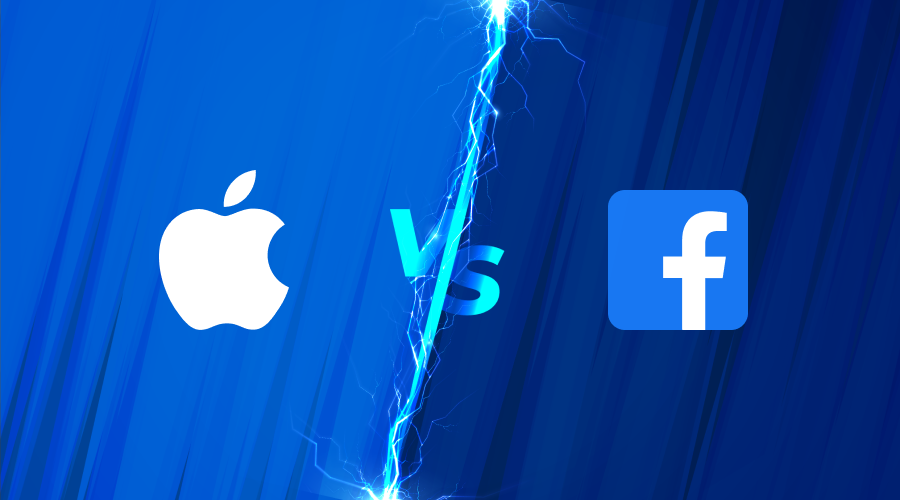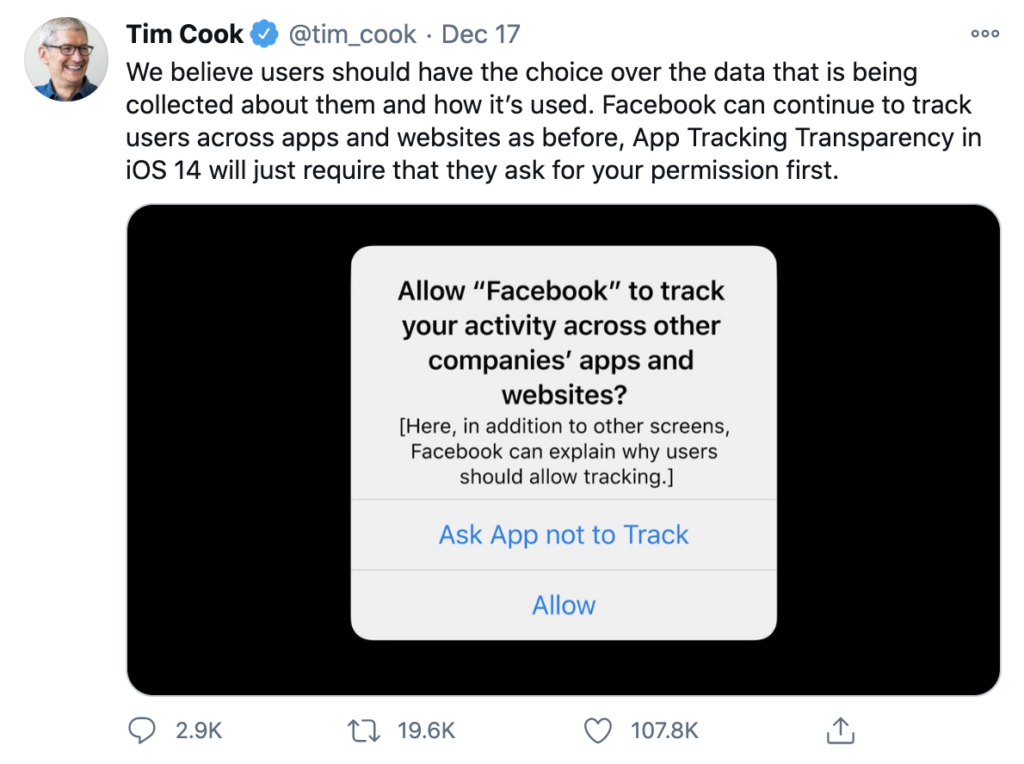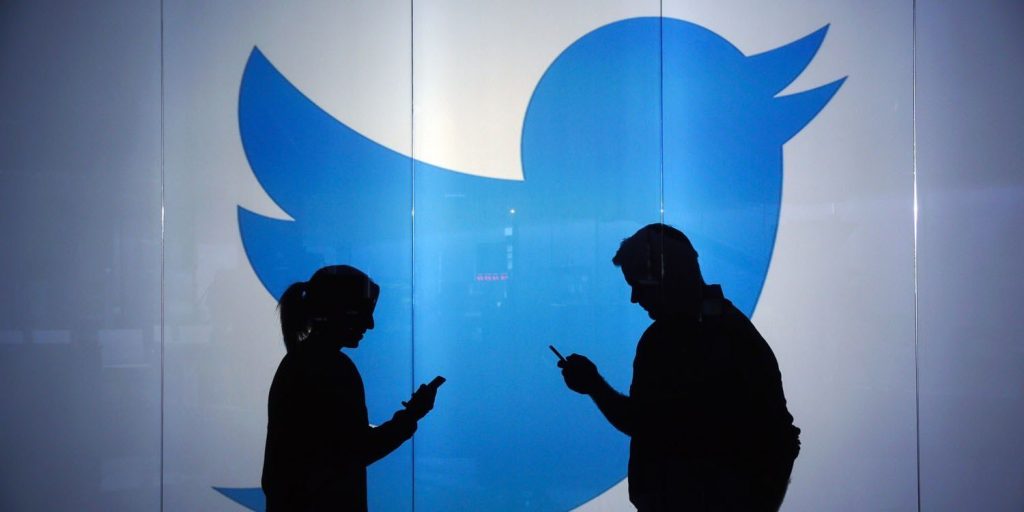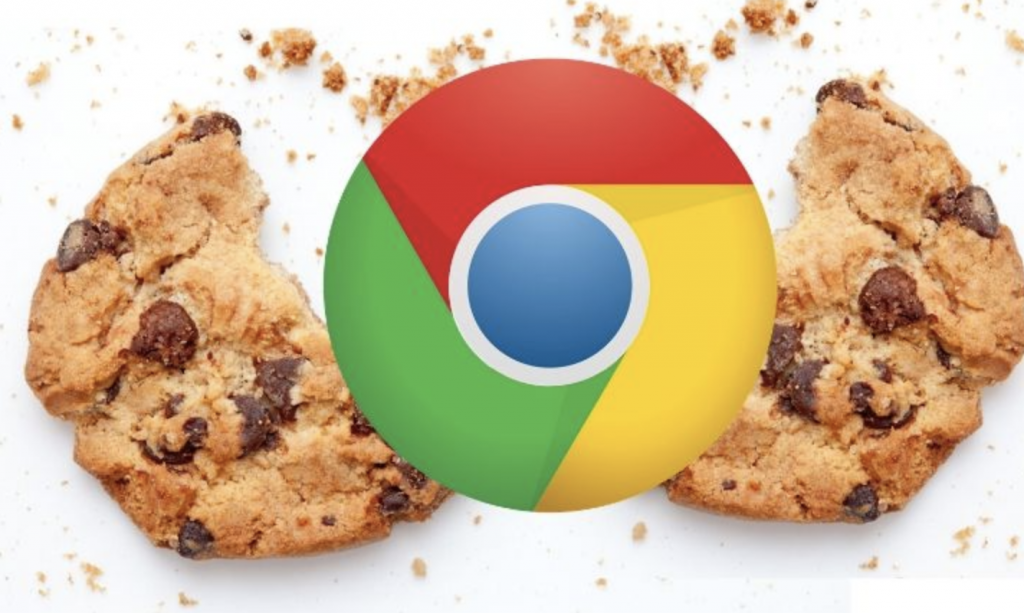What the FLoC is going on with data privacy?
Do you know how Apple’s iOS 14 update will affect your advertising? Are you wondering WTF Google’s FLoC is? Well, you’ve come to the right place!
All of the recent news surrounding data privacy and digital marketing is enough to make your head explode 🤯.
- Does the iOS 14 update prioritize profits or privacy?
- Is Apple’s ATT (App Tracking Transparency) reinforcing the walled garden?
- Why Twitter isn’t sweating Apple’s privacy update
- How Google’s FloC announcement is steamrolling third-party advertisers
Let’s get to the bottom of things. Keep reading to learn more 👇
Facebook: Apple’s iOS 14 Policy Prioritizes Profits, Not Privacy
Apple vs. Facebook

Quick Catch-Up:
Apple’s new iOS 14 data privacy policy will require apps to get a user’s permission to track their data across apps or websites owned by other companies.
What’s New?
In a recent blog post, Facebook took a stand for small businesses against Apple’s new iOS 14 policy… well, that was the intended message, at least. Ulterior motives aside, the social media network does raise some valid points to consider regarding the new policy and also levels some strong claims about the fruit-named tech titan.
Facebook’s Side of the Story
- This new policy aims to increase Apple’s profits under the guise of user privacy. How? It will make businesses try to drive revenue by turning to subscriptions and other in-app payments, which are subject to an Apple tax of 15% to 30%.
- Apple’s not even following its own guidelines — the company’s personalized ad platform isn’t subject to the new iOS 14 privacy policy. Is this a textbook example of “Rules for thee, not for me”?
- Rather than risk retaliation, Facebook will show iOS 14’s new data opt-out prompt. It will also show its own prompt that provides info on how Facebook uses personalized ads to support small businesses.
Some Memorable Statistics:
- 44% of small to medium businesses (SMBs) increased social media targeted advertising since the pandemic started, according to a Deloitte study.
- SMBs that used targeted advertising were twice as likely to report higher revenues.
- Mobile app publishers saw revenue drop by 50% when personalization was removed from mobile app ad install campaigns in a Facebook study.
- Without personalized ads, small business owners saw a decrease of more than 60% in website sales from ads.
The Imminent Arrival of Apple’s App Tracking Transparency Is Day(s) Away
Data Privacy

Have you been wondering how Apple will implement iOS 14’s data privacy policy? Well, look no further — the company will use a new App Tracking Transparency (ATT) feature to enforce its guidelines. And it’s coming to a phone near you any day now.
When Is ATT Arriving?
Originally expected to launch in September 2020, the new anti-tracking feature will come with iOS 14.5 in early spring this year. It was delayed due to pushback from other companies like Facebook and Google (see the story above for more).
What Does ATT Do, Exactly?
As all good digital marketers know, mobile apps track your activity across other apps and websites so they can target their advertising. This is done without revealing a user’s personal info through the Identifier for Advertisers (IDFA).
To add transparency to this process, Apple’s ATT will present a prompt before users open an app that allows them to opt out of activity tracking. Users can also make changes to this under “Settings” at any time.
This Walled Garden Will Affect Everyone in One Way or Another
Apple says it’s implementing the ATT feature for users. It certainly aligns with regulations like the EU’s GDPR and should help champion privacy. But will iPhone users be happy to pay for apps instead as a trade-off?
Remember, if we’re not paying for a product, we are the product. Without insights from IDFAs, businesses will likely have to fund themselves in other ways.
And as for how this will all affect digital marketers? This remains to be seen. Brace yourselves and be ready to adapt!
Is iOS 14’s Privacy Update an Opportunity for Twitter?

No Worries:
Twitter isn’t sweating or fretting over Apple’s iOS 14 privacy update like Facebook is. In fact, the social media company is feeling pretty confident about things will unfold.
IDFA Tracking Opt-Out = A Prime Opportunity?
Ned Segal, Twitter’s CFO, believes that Apple’s new privacy changes will actually equalize the playing field among social media giants. How so? Segal admitted that many platforms like Facebook have been better at leveraging data than Twitter. This new set of challenges from Apple’s iOS 14 update could change this.
Twitter’s Grand Plan?
To Sit Back and Relax. Instead of immediately asking its users to opt into IDFA tracking, Twitter is going to take its time. Regarding the ATT prompt, Segal says, “You want to ask in a really thoughtful way, and you want to take time to learn from the industry and the broader ecosystem before you ask a question like that.”
Google Has a Message for Third-Party Advertisers: FLoC Your Cookies
Google Chrome

The Story in 30 Seconds:
Google Chrome, the world’s most popular web browser, is ditching third-party cookies — for good! And if Google gets its way, the company will completely rewrite the rules of digital advertising by making it much more difficult to track web activity.
This may seem like a big win for data privacy, but it will likely be Google that comes out on top. The prize? The entire online advertising industry and web.
A Big Change Behind the Scenes
Google is going to put Chrome in charge of a large chunk of the online advertising process by replacing third-party cookies with browser-based machine learning that logs your history and lumps users into cohorts based on similar interests.
Some data privacy proponents see this as a welcome change because it seems that it will do away with the infrastructure that enables individualized web tracking and profiling. But many critics and regulators are concerned that this move could harm several websites that rely on ads and even put small advertising companies out of business.
Is Online Advertising Overdue for a Change?
With the online advertising industry currently collecting, storing, and using billions of data points about our personal lives, many privacy experts believe this change is necessary. Some even consider third-party cookies to be the most privacy-invasive technology in the world right now.
Google plans to do away with third-party cookies by 2022, but it won’t be the first tech titan to do so. Apple already limited cookie tracking in 2017 for its web browser Safari, and Mozilla Firefox blocked third-party cookies in 2019. In fact, the latter finds itself blocking 10 billion trackers every single day. But Chrome’s large market share is monumental — it’s sure to make a big impact on how digital advertising is done.
Google’s Alternative for Targeted Advertising
So, how will Google target ads? With a machine learning system called Federated Learning of Cohorts (FLoC). It will analyze your web history and place you in groups based on your interests. Advertisers can then serve up ads based on these groups. Google began testing FLoC this March.
It should come as no surprise that FLoC could end up being creepier than third-party cookies. While it will send less personal data to third parties, experts are raising concerns about how people will be grouped together and the possibilities of discrimination based on race, sexual orientation, or even disability.
To allay fears, Google has vocalized that personalized ads based on sensitive categories are against its policies. So any such FLoC groups will be blocked. And if that’s not possible, Google will revise its algorithm to “reduce the correlation.”
The Biggest Winner From This Change? Probably Google (Duh)
By blocking third-party cookies in Chrome, Google may gain more power over the entire digital advertising ecosystem. Chrome will essentially become a bottleneck for ad tech.
Of course, you’re probably wondering about companies that collect first-party data. They may be able to better target ads, right? Well, two companies completely dominate first-party web data collection: Facebook, and you guessed it, Google. So it’s reasonable to assume that they would benefit the most from this monumental change.
Leave a comment